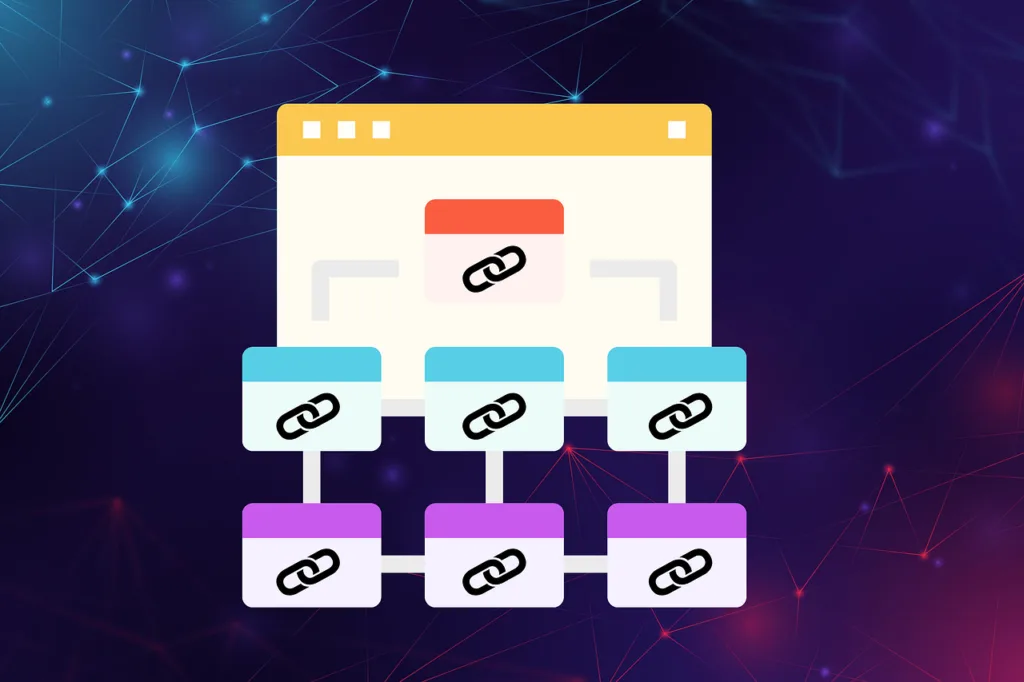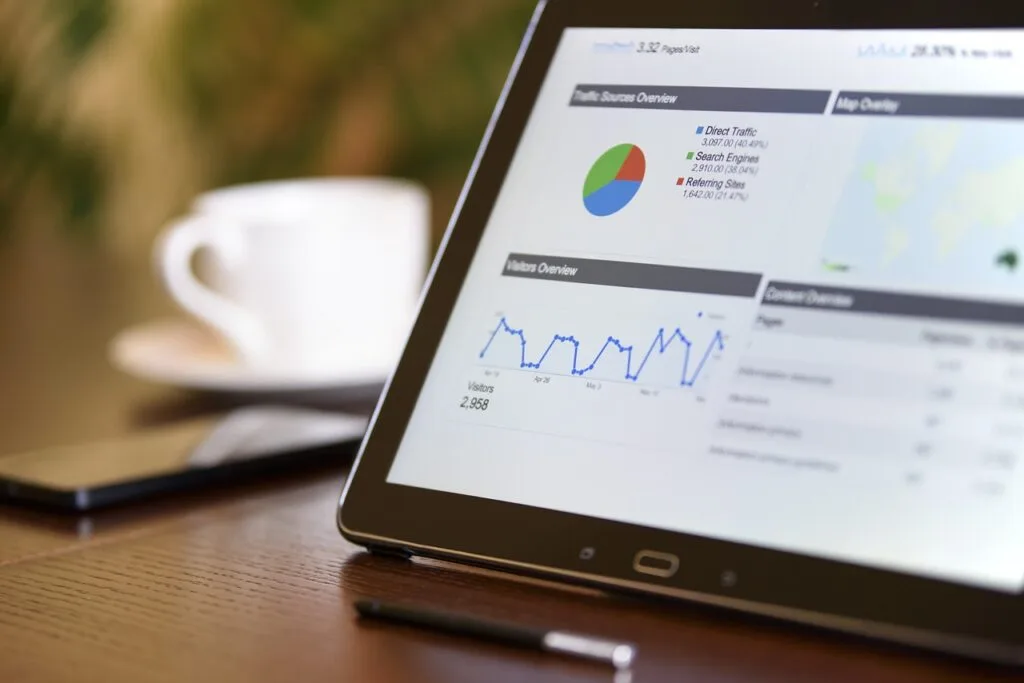This Article has been revised, edited and added to, by Poulomi Chakraborty.
- The Importance of Local Backlinks: A Comparison
- Identifying Potential Sources for Local Backlinks
- Effective Outreach Strategies for Securing Local Backlinks
- Creating Local Content That Attracts Backlinks
- Leveraging Social Media for Local Backlink Building
- Choosing the Right Social Media Platforms
- Engaging with Local Communities
- Sharing Local Content
- Collaborating with Local Influencers
- Hosting Social Media Contests and Giveaways
- Utilizing Local Hashtags
- Engaging with Local News and Media Outlets
- Monitoring Social Media Mentions
- Creating Shareable Visual Content
- Monitoring and Maintaining Your Local Backlinks
- Conclusion
In the world of digital marketing, backlinks are a crucial component of a successful SEO strategy. For B2C (business-to-consumer) businesses, building local backlinks can significantly boost your online presence and drive more traffic to your website. But what exactly are local backlinks, and why are they so important?
Local backlinks are links from other websites within your geographic area that point back to your site. They signal to search engines that your business is relevant to local searches, helping you rank higher in search results for queries specific to your area. This can lead to increased visibility, more website visitors, and ultimately, more customers.
In this article, we will delve into the various strategies for building local backlinks for B2C businesses. We’ll cover everything from identifying potential backlink sources to reaching out and securing those valuable links. By the end of this article, you’ll have a comprehensive understanding of how to leverage local backlinks to enhance your online presence and grow your business.
Now, let’s get started by exploring the importance of local backlinks and how they compare to other types of backlinks.
The Importance of Local Backlinks: A Comparison

When it comes to backlinks, not all links are created equal. While any backlink can potentially boost your site’s SEO, local backlinks hold a special significance for B2C businesses targeting a specific geographic area. To understand why local backlinks are so crucial, let’s compare them to other types of backlinks.
Local Backlinks vs. National/Global Backlinks
Local backlinks are links from websites within your specific geographic area. These could be local news sites, community blogs, local business directories, or other relevant local websites. On the other hand, national or global backlinks come from websites with a broader audience, often without a specific geographic focus.
Relevance to Your Audience:
Local backlinks are more relevant to your target audience if your business primarily serves a local market. For example, if you own a coffee shop in Chicago, a backlink from a popular local food blog is more valuable than a backlink from a national coffee enthusiast website.
This is because your potential customers are more likely to visit your shop based on a recommendation from a local source.
Search Engine Signals:
Search engines like Google prioritize relevance and context. Local backlinks signal to search engines that your business is relevant to local searches. This helps you rank higher in search results for local queries, such as “best coffee shop in Chicago.” National or global backlinks may not have the same impact on your local search rankings.
Trust and Authority:
Local backlinks can enhance your credibility and authority within your community. When local websites link to your business, it shows that other local entities trust and endorse you.
This can significantly influence potential customers’ perception of your business. While national or global backlinks can also boost your authority, they might not resonate as strongly with a local audience.
Traffic Quality:
The traffic you receive from local backlinks is often more qualified and likely to convert. Local visitors are more relevant to your business and are more likely to engage with your website, visit your store, or make a purchase. National or global backlinks might drive more traffic, but the visitors may not be as targeted or likely to convert into customers.
Local Backlinks vs. Industry-Specific Backlinks
Industry-specific backlinks come from websites related to your industry, regardless of their geographic location. These links are valuable because they establish your expertise and authority within your industry. However, local backlinks have their own unique advantages.
Combining Strengths:
For B2C businesses, the ideal scenario is to have a mix of both local and industry-specific backlinks. Local backlinks help you rank higher in local searches and attract local customers, while industry-specific backlinks establish your authority and expertise within your field. Combining both types of backlinks creates a robust and well-rounded SEO strategy.
Targeted Outreach:
Local backlinks often require targeted outreach within your community. This involves networking with local businesses, organizations, and influencers to build relationships and secure backlinks.
Industry-specific backlinks may require a broader outreach strategy, connecting with industry publications, blogs, and websites. Both approaches require strategic planning and effort.
Building Community Ties:
Focusing on local backlinks helps you build strong ties within your community. Engaging with local websites, participating in local events, and contributing to local content can enhance your visibility and reputation within your community. This can lead to more organic backlinks and positive word-of-mouth referrals.
Local backlinks play a critical role in enhancing your online presence and driving targeted traffic to your B2C business. While national, global, and industry-specific backlinks are also valuable, local backlinks offer unique advantages that can significantly boost your local search rankings and attract more local customers.
Identifying Potential Sources for Local Backlinks

Now that we’ve established the importance of local backlinks for B2C businesses, the next step is to identify potential sources for these valuable links. Building local backlinks requires a strategic approach, focusing on websites and online platforms that are relevant to your geographic area and industry. Here are several key sources to consider:
1. Local Business Directories
Local business directories are one of the most straightforward and effective sources for local backlinks. These directories list businesses within a specific geographic area, providing essential information such as contact details, addresses, and websites. Examples include Yelp, Yellow Pages, and Google My Business.
Why They Matter:
These directories are trusted by both search engines and users, making them a reliable source for backlinks. Being listed on local business directories not only provides a backlink but also enhances your visibility in local searches.
How to Get Listed:
Start by creating or claiming your business profile on these directories. Ensure that your information is accurate and consistent across all platforms. Add as much detail as possible, including your business hours, photos, and customer reviews. This not only improves your chances of getting a backlink but also makes your listing more attractive to potential customers.
2. Local News Websites
Local news websites often cover stories about businesses, events, and happenings within the community. Getting featured in a local news article or press release can provide a valuable backlink to your site.
Why They Matter:
Local news websites are authoritative sources within the community. A backlink from a local news site can significantly boost your credibility and search engine rankings.
How to Get Featured:
Reach out to local journalists and news outlets with press releases or story pitches. Highlight any newsworthy aspects of your business, such as new product launches, community involvement, or unique events. Building relationships with local reporters can increase your chances of being featured in future articles.
3. Local Blogs and Influencers
Local bloggers and influencers often have a dedicated following within your community. Collaborating with them can lead to valuable backlinks and increased visibility for your business.
Why They Matter:
Local bloggers and influencers are trusted voices within the community. Their endorsements can carry significant weight with their audience, driving traffic and potential customers to your site.
How to Collaborate:
Identify local bloggers and influencers whose audience aligns with your target market. Reach out to them with collaboration proposals, such as guest blog posts, product reviews, or sponsored content. Ensure that your collaboration provides value to their audience, increasing the likelihood of them linking back to your site.
4. Local Chambers of Commerce
Local chambers of commerce often have directories or member listings that can provide valuable backlinks. These organizations support local businesses and can be a great source of networking opportunities.
Why They Matter:
Backlinks from chambers of commerce are highly authoritative and relevant to local searches. Being associated with a reputable organization like the chamber of commerce can also enhance your business’s credibility.
How to Get Listed:
Join your local chamber of commerce and ensure your business is listed in their directory. Participate in chamber events and activities to build relationships with other local business owners and potentially secure additional backlinks.
5. Local Event Listings
Local event websites and community calendars list events happening within the area. If your business hosts or participates in local events, getting listed on these platforms can provide valuable backlinks.
Why They Matter:
Event listings are often viewed by a local audience looking for things to do in their area. Being featured in these listings can drive traffic to your site and increase your visibility in local searches.
How to Get Listed:
Submit your event details to local event websites and community calendars. Include all relevant information, such as the date, time, location, and a link to your website. Engaging with the local community through events can also lead to additional backlink opportunities from event coverage and promotions.
6. Educational Institutions
Local schools, colleges, and universities often have resource pages or local business directories that can provide backlinks. Partnering with educational institutions can also open up opportunities for community engagement and visibility.
Why They Matter:
Educational institutions are highly authoritative sources. A backlink from a local school or university can significantly boost your site’s credibility and search engine rankings.
How to Collaborate:
Reach out to local educational institutions with partnership proposals. Offer to provide resources, sponsor events, or collaborate on community projects. Ensure that your collaboration benefits both the institution and your business, increasing the likelihood of securing a backlink.
7. Community Organizations and Nonprofits
Local community organizations and nonprofits often have websites that feature local businesses and partners. Supporting these organizations can lead to valuable backlinks and positive community relationships.
Why They Matter:
Backlinks from community organizations and nonprofits are relevant and authoritative. Supporting local causes can also enhance your business’s reputation and visibility within the community.
How to Get Involved:
Identify local organizations and causes that align with your business values. Offer to sponsor events, provide donations, or volunteer your time. Building genuine relationships with these organizations can lead to backlink opportunities and positive community engagement.
Identifying potential sources for local backlinks is the first step in building a successful local SEO strategy. By targeting local business directories, news websites, blogs, chambers of commerce, event listings, educational institutions, and community organizations, you can secure valuable backlinks that enhance your online presence and drive local traffic to your B2C business.
Effective Outreach Strategies for Securing Local Backlinks

Securing local backlinks requires more than just identifying potential sources. It involves a strategic approach to outreach, fostering relationships, and providing value to those you seek links from. Let’s dive into the tactics and techniques you can use to successfully secure local backlinks for your B2C business.
Building Relationships with Local Websites
Establishing connections within your local community is fundamental to securing local backlinks. Start by engaging with local websites, blogs, and businesses. Comment on their posts, share their content, and participate in community discussions.
By being an active and supportive member of your local online community, you can build relationships that pave the way for future backlink opportunities.
When you have established a rapport, reach out directly. Personalize your communication, referencing specific content or interactions that demonstrate your genuine interest.
Explain how a backlink from their site would be mutually beneficial, highlighting any relevant content or resources you can offer in return. Building these relationships takes time, but the investment can yield high-quality backlinks that boost your local SEO.
Crafting Compelling Outreach Emails
The art of crafting outreach emails lies in personalization and value. A generic, one-size-fits-all approach will likely be ignored. Instead, tailor your emails to each recipient, addressing them by name and referencing specific content or aspects of their site. Clearly articulate why you’re reaching out and how a backlink would be beneficial to them, not just to you.
When proposing a backlink, offer something of value in return. This could be a guest post, a mention on your social media channels, or even a collaboration opportunity.
Make it clear that your request is not just about gaining a backlink but about building a mutually beneficial relationship. Providing value upfront increases the likelihood of a positive response and a successful backlink acquisition.
Leveraging Local Events and Sponsorships
Participating in local events and sponsorships can be a powerful way to earn backlinks. Local events often have websites and promotional materials that feature their sponsors and participants. By getting involved in these events, you can secure backlinks from event listings, promotional pages, and post-event coverage.
To maximize your backlink opportunities, choose events that align with your business and target audience. This ensures that the backlinks you receive are relevant and beneficial to your SEO efforts.
Additionally, actively engage with event organizers and other participants. Building these connections can lead to further backlink opportunities and enhance your local presence.
Creating Shareable Local Content
Content that resonates with your local audience is more likely to be shared and linked to by local websites and bloggers. Focus on creating high-quality, shareable content that highlights local interests, events, and issues. This could include local guides, event coverage, interviews with local figures, or features on local businesses.
Promote your content through your own channels and encourage others to share it. When local websites and bloggers see the value and relevance of your content, they are more likely to link back to it.
Additionally, use social media to amplify your reach. Engaging with your local community on social platforms can drive traffic to your content and increase your chances of earning backlinks.
Collaborating with Local Influencers
Local influencers can be powerful allies in your backlink-building efforts. These individuals have a strong following within your community and can provide valuable backlinks through their blogs, social media channels, and other online platforms. Collaborate with influencers by offering product reviews, guest posts, or joint promotional efforts.
Identify influencers whose audience aligns with your target market and reach out with personalized collaboration proposals. Highlight the mutual benefits of the collaboration and how it can add value to their followers. Successful collaborations can result in high-quality backlinks and increased visibility for your business.
Engaging in Local PR Efforts
Public relations is another effective strategy for earning local backlinks. Craft press releases and pitch stories to local news outlets, highlighting newsworthy aspects of your business.
Whether it’s a new product launch, a community event, or a unique business initiative, positioning your business as a source of interesting news can attract media coverage and valuable backlinks.
Build relationships with local journalists and media outlets. Follow them on social media, engage with their content, and provide valuable insights and information. When they see you as a credible and reliable source, they are more likely to feature your business in their stories, resulting in backlinks from reputable local news sites.
Monitoring and Following Up
Effective outreach doesn’t end once you’ve sent your initial request. Monitoring your outreach efforts and following up is crucial for success. Keep track of your outreach emails, noting which ones have received responses and which haven’t.
For those that haven’t responded, send a polite follow-up email after a week or two, reiterating your request and highlighting any additional value you can offer.
Persistence is key, but it’s important to balance follow-ups with respect for the recipient’s time. If you still don’t receive a response after a follow-up, it may be best to move on and focus your efforts elsewhere.
Building local backlinks is a continuous process that requires patience, persistence, and a willingness to build and nurture relationships.
Effective outreach strategies for securing local backlinks involve building relationships, crafting personalized outreach emails, leveraging local events, creating shareable content, collaborating with influencers, engaging in PR efforts, and diligently following up.
These tactics, when executed thoughtfully and consistently, can help you build a robust local backlink profile that enhances your SEO and drives targeted traffic to your B2C business.

Creating Local Content That Attracts Backlinks
Creating content that naturally attracts local backlinks is an essential strategy for boosting your B2C business’s online presence. Local content should be relevant, valuable, and engaging to your community. Here, we will explore how to create compelling local content that encourages other websites to link back to you.
Understanding Your Local Audience
The foundation of successful local content creation lies in understanding your audience. Research the interests, preferences, and pain points of your local community.
Utilize tools like Google Analytics, social media insights, and local forums to gather data on what your audience cares about. This understanding will guide you in creating content that resonates and meets the needs of your local market.
Engage directly with your audience through surveys, social media polls, and feedback forms. Ask them what topics they find interesting or what local issues they care about.
This direct input can provide valuable insights and help you tailor your content to their preferences, increasing the likelihood of earning backlinks from local sources.
Highlighting Local Events and Stories
Local events and stories are a rich source of content that can attract backlinks. Covering local events, whether they are community festivals, charity drives, or business expos, provides timely and relevant content that appeals to your local audience. Write detailed articles, create event guides, or produce videos that capture the essence of these events.
Featuring local stories, such as profiles of community leaders, success stories of local businesses, or interviews with residents, adds a personal touch to your content. These stories not only engage your audience but also encourage the featured individuals and organizations to share and link back to your content.
Creating Local Guides and Resources
Local guides and resources are highly valuable content pieces that can attract backlinks from various sources. Create comprehensive guides on topics such as “Best Restaurants in [Your City],” “Top Attractions in [Your Neighborhood],” or “Local Shopping Guide.”
These guides serve as useful references for both residents and visitors, making them prime candidates for backlinks.
Ensure your guides are detailed, well-researched, and visually appealing. Include high-quality images, maps, and insider tips to enhance their value. Promote these guides on social media and reach out to local businesses and tourism websites, encouraging them to link to your content as a valuable resource for their audience.
Addressing Local Issues and Concerns
Content that addresses local issues and concerns can generate significant engagement and backlinks. Identify pressing issues within your community, such as traffic problems, environmental concerns, or public safety matters.
Create in-depth articles, opinion pieces, or investigative reports that provide valuable insights and potential solutions.
Collaborate with local experts, activists, and organizations to gather information and perspectives. By providing a platform for these voices, you can create content that is not only informative but also highly shareable.
Local news outlets, community blogs, and interest groups are more likely to link to content that addresses important local topics and drives meaningful discussions.
Showcasing Local Culture and Heritage
Celebrating local culture and heritage through your content can attract a wide range of backlinks. Create content that highlights local traditions, historical landmarks, cultural festivals, and unique aspects of your community.
This type of content resonates with local pride and can be shared by cultural organizations, heritage sites, and local media.
Consider creating multimedia content such as photo essays, documentary-style videos, or interactive maps that explore your community’s cultural richness. These engaging formats can capture the interest of a broad audience and encourage backlinks from diverse sources.
Partnering with Local Experts and Influencers
Collaborating with local experts and influencers can enhance the credibility and reach of your content. Partner with local chefs for a food blog series, work with fitness trainers for health and wellness content, or team up with artists for cultural features. These collaborations add depth to your content and attract the influencer’s audience to your site.
When these local experts and influencers share the content you’ve created together, it naturally generates backlinks. Additionally, the authority and trust associated with these individuals can boost your content’s perceived value and increase the likelihood of other local websites linking to it.
Utilizing User-Generated Content
User-generated content (UGC) is a powerful tool for creating engaging and link-worthy local content. Encourage your audience to share their experiences, photos, and stories related to your business or community. Feature this content on your website and social media channels, giving credit to the contributors.
Hosting contests or challenges that involve UGC can also boost engagement and backlinks. For example, a photo contest highlighting the best local spots can generate a wealth of content and encourage participants to share and link back to your site. UGC not only diversifies your content but also strengthens community ties and drives organic backlinks.
Promoting Your Local Content
Creating local content is just the first step; promoting it effectively is crucial for attracting backlinks. Share your content across all your social media platforms, and use local hashtags to reach a broader audience. Engage with local online communities, forums, and groups to share your content and encourage discussions.
Reach out to local websites, bloggers, and news outlets with personalized pitches, highlighting the value and relevance of your content to their audience. Offer to provide exclusive insights or quotes for their articles in exchange for a backlink. Consistent and strategic promotion ensures your content reaches the right audience and maximizes its backlink potential.
Creating local content that attracts backlinks involves understanding your audience, highlighting local events and stories, producing valuable guides and resources, addressing local issues, showcasing local culture, partnering with experts and influencers, utilizing user-generated content, and promoting your content effectively. By implementing these strategies, you can build a strong local backlink profile that enhances your SEO and drives targeted traffic to your B2C business.
Leveraging Social Media for Local Backlink Building

Social media is a powerful tool for building local backlinks and enhancing your online presence. By effectively leveraging social media platforms, you can engage with your local audience, promote your content, and attract valuable backlinks from local sources. Here’s how to use social media to build local backlinks for your B2C business.
Choosing the Right Social Media Platforms
Not all social media platforms are created equal, and different platforms cater to different audiences. For local backlink building, focus on platforms where your target audience is most active and engaged. Facebook, Instagram, and Twitter are popular choices for local businesses due to their broad user base and community-focused features.
Facebook is ideal for community engagement and sharing detailed content. Instagram is great for visual content and engaging a younger audience. Twitter is useful for quick updates, interactions, and sharing news. LinkedIn can also be valuable, especially if your business targets professionals or other businesses.
Engaging with Local Communities
Engaging with local communities on social media is crucial for building relationships and earning backlinks. Join local groups, participate in community discussions, and share relevant content. Be an active and helpful member of these communities, offering value and insights without always promoting your business.
On Facebook, join local groups related to your industry or community. Share your content and engage with group members by commenting on posts and answering questions. On Instagram, use local hashtags to reach a broader local audience and engage with users by liking, commenting, and sharing their content.
Sharing Local Content
Promoting your local content on social media can drive traffic and attract backlinks. Share blog posts, guides, and other local content across your social media channels.
Write engaging captions that encourage your audience to read and share your content. Use local hashtags and tag relevant local businesses, organizations, and influencers to increase your reach.
When sharing content, tailor your posts to the platform. For example, on Instagram, use eye-catching images or videos along with local hashtags. On Facebook, write detailed posts with links to your content. On Twitter, use concise, compelling tweets with relevant hashtags and mentions.
Collaborating with Local Influencers
Collaborating with local influencers can amplify your content and attract backlinks. Identify influencers in your community whose audience aligns with your target market. Reach out to them with collaboration proposals, such as co-creating content, hosting giveaways, or featuring them in your blog posts.
When influencers share the content you’ve created together, it exposes your business to their followers and increases the chances of earning backlinks. Influencers can also provide valuable endorsements that enhance your credibility and attract more local attention.
Hosting Social Media Contests and Giveaways
Social media contests and giveaways are effective for engaging your audience and generating user-generated content. Host contests that encourage participants to share your content, tag your business, or use a specific hashtag. This not only increases your visibility but also creates opportunities for backlinks.
For example, you can host a photo contest where participants share images related to your business or local community. Encourage them to tag your business and use a branded hashtag.
Feature the best entries on your social media channels and website, giving credit to the participants. This fosters community engagement and attracts backlinks from participants and their followers.
Utilizing Local Hashtags
Using local hashtags is a simple yet powerful way to increase the visibility of your content and attract backlinks. Research popular local hashtags relevant to your business and incorporate them into your posts. This helps your content reach a broader local audience and increases the chances of local websites and influencers discovering and linking to your content.
Create a branded hashtag for your business and encourage your audience to use it when sharing content related to your business. This helps you track user-generated content and engage with your audience, fostering a sense of community and increasing the likelihood of earning backlinks.
Engaging with Local News and Media Outlets
Local news and media outlets are active on social media and often share community news, events, and stories. Engage with these outlets by liking, commenting, and sharing their posts. Tag them in your posts and share content that might be of interest to their audience.
Building relationships with local media on social media can lead to opportunities for features and backlinks. When you have newsworthy content, such as a new product launch or community event, reach out to local journalists and media outlets through social media.
Provide them with relevant information and links to your content, increasing the chances of coverage and backlinks.
Monitoring Social Media Mentions
Monitoring social media mentions is essential for identifying backlink opportunities and engaging with your audience. Use social media listening tools to track mentions of your business, products, or relevant keywords. When someone mentions your business or shares your content, engage with them by liking, commenting, or sharing their post.
Responding to social media mentions shows that you value your audience’s engagement and can foster positive relationships. This can lead to further sharing of your content and potential backlinks.
Additionally, by monitoring mentions, you can identify influencers and local websites that are already interested in your business and reach out to them for collaboration opportunities.
Creating Shareable Visual Content
Visual content is highly shareable on social media and can attract backlinks from local websites and bloggers. Create high-quality images, infographics, videos, and other visual content that resonates with your local audience. Share this content on your social media channels and encourage your audience to share it as well.
For example, create infographics that provide useful local information, such as event schedules, local tips, or community statistics. Share these infographics on social media with relevant local hashtags and tags. Visual content that is informative and visually appealing is more likely to be shared and linked to by other local websites and blogs.
Leveraging social media for local backlink building involves choosing the right platforms, engaging with local communities, sharing local content, collaborating with influencers, hosting contests, using local hashtags, engaging with local media, monitoring mentions, and creating shareable visual content.
By implementing these strategies, you can enhance your online presence, attract valuable local backlinks, and drive targeted traffic to your B2C business.
Monitoring and Maintaining Your Local Backlinks

Building local backlinks is just the beginning. To ensure their long-term effectiveness and continually improve your SEO strategy, it’s essential to monitor and maintain your backlinks regularly. This section will cover the best practices for tracking your local backlinks, analyzing their impact, and addressing any issues that arise.
Using Backlink Monitoring Tools
The first step in monitoring your local backlinks is to use backlink monitoring tools. These tools help you keep track of where your backlinks are coming from, their quality, and how they impact your search engine rankings. Some popular backlink monitoring tools include Ahrefs, Moz, SEMrush, and Google Search Console.
These tools provide detailed reports on your backlink profile, including the number of backlinks, their source, anchor text, and their impact on your SEO. Regularly reviewing these reports helps you stay informed about your backlink status and identify any changes or trends.
Analyzing Backlink Quality
Not all backlinks are created equal. The quality of your backlinks is crucial for their effectiveness. High-quality backlinks come from reputable and relevant local websites, while low-quality backlinks can harm your SEO efforts. Use your backlink monitoring tools to analyze the quality of your backlinks.
Look for backlinks from authoritative local websites, such as local news outlets, popular blogs, and reputable business directories. Evaluate the relevance of the backlink source to your business and target audience. High-quality backlinks from relevant sources have a more significant positive impact on your SEO.
Addressing Toxic Backlinks
Toxic backlinks are links from low-quality or spammy websites that can harm your SEO. These links can arise from various sources, such as link farms, unrelated sites, or websites with poor reputations. Regularly check your backlink profile for toxic backlinks using your monitoring tools.
If you identify toxic backlinks, take steps to address them. Reach out to the webmasters of these sites and request the removal of the links. If removal requests are unsuccessful, use the Google Disavow Tool to disavow these backlinks. This tells search engines to ignore these links, preventing them from negatively affecting your SEO.
Keeping Backlinks Active
Sometimes, backlinks can become inactive or broken over time. This can happen if the linking page is removed, the URL changes, or the website undergoes restructuring. Regularly check the status of your backlinks to ensure they are still active and pointing to the correct pages on your site.
If you find broken or inactive backlinks, reach out to the webmasters of the linking sites and request updates to the links. Provide them with the correct URLs to ensure the backlinks remain active and beneficial to your SEO.
Encouraging Continued Engagement
Maintaining relationships with the sources of your local backlinks is essential for continued engagement and future backlink opportunities. Regularly engage with these local websites, blogs, and influencers by sharing their content, commenting on their posts, and collaborating on new projects.
Show appreciation for the backlinks by publicly acknowledging and thanking the linking sites. This fosters positive relationships and encourages them to continue linking to your content. Building and nurturing these relationships can lead to ongoing backlink opportunities and stronger community ties.
Creating Fresh Local Content
To keep earning local backlinks, continually create fresh and valuable local content. Regularly update your blog with new articles, guides, and resources relevant to your local audience. Cover new local events, highlight emerging trends, and address current issues within your community.
Promote your new content through your social media channels, email newsletters, and direct outreach to local websites and influencers. Consistently providing fresh content keeps your audience engaged and encourages other local websites to link to your latest content.
Tracking Backlink Impact
Understanding the impact of your local backlinks on your SEO and business performance is crucial. Use your backlink monitoring tools to track changes in your search engine rankings, website traffic, and conversions. Analyze the data to identify which backlinks are driving the most significant results.
Look for patterns and trends in your backlink performance. For example, determine if certain types of content or sources consistently generate high-quality backlinks. Use this information to refine your content and outreach strategies, focusing on what works best for your business.
Adapting Your Strategy
SEO and backlink strategies are not static; they require continuous adaptation and improvement. Regularly review your backlink performance and adjust your strategy based on the insights you gain. Stay informed about changes in search engine algorithms and best practices for backlink building.
Experiment with different types of content, outreach methods, and collaboration opportunities. Test new approaches and measure their impact on your backlink profile and SEO. Continuously refining and adapting your strategy ensures you stay ahead of the competition and maximize the benefits of your local backlinks.
Reporting and Communicating Results
If you have a team or stakeholders involved in your SEO efforts, regularly report on your backlink performance and progress. Share insights, successes, and areas for improvement. Clear communication ensures everyone is aligned and aware of the impact of your local backlink strategy.
Use visual reports, charts, and graphs to present your data effectively. Highlight key metrics, such as the number of new backlinks, changes in search engine rankings, and increases in website traffic and conversions. Providing clear and concise reports helps demonstrate the value of your efforts and secures continued support for your SEO strategy.
Monitoring and maintaining your local backlinks involves using monitoring tools, analyzing backlink quality, addressing toxic backlinks, keeping backlinks active, encouraging continued engagement, creating fresh local content, tracking backlink impact, adapting your strategy, and reporting results.
By implementing these practices, you can ensure the long-term success and effectiveness of your local backlink strategy, enhancing your SEO and driving targeted traffic to your B2C business.
Conclusion
Building and maintaining local backlinks is a vital component of a successful SEO strategy for B2C businesses. By focusing on local directories, news websites, blogs, events, and influencers, you can secure high-quality backlinks that enhance your visibility in local searches and drive targeted traffic to your site. Engaging with your community, creating valuable local content, and leveraging social media are essential tactics for earning and sustaining these backlinks.
Regular monitoring and maintenance ensure that your backlink profile remains healthy and effective. Adapting your strategy based on performance insights and staying updated with SEO best practices will help you stay ahead of the competition. By implementing these strategies, you can strengthen your online presence, build credibility within your community, and ultimately drive growth for your business.
READ TEXT:
- Social Media Signals and SEO for Travel Websites
- SEO Strategies for Peak Travel Seasons
- Special Holiday SEO Strategies for Travel Websites
- Understanding Google’s E-A-T Criteria for Travel Websites
- SEO for Last-Minute Travel Deals






















Comments are closed.